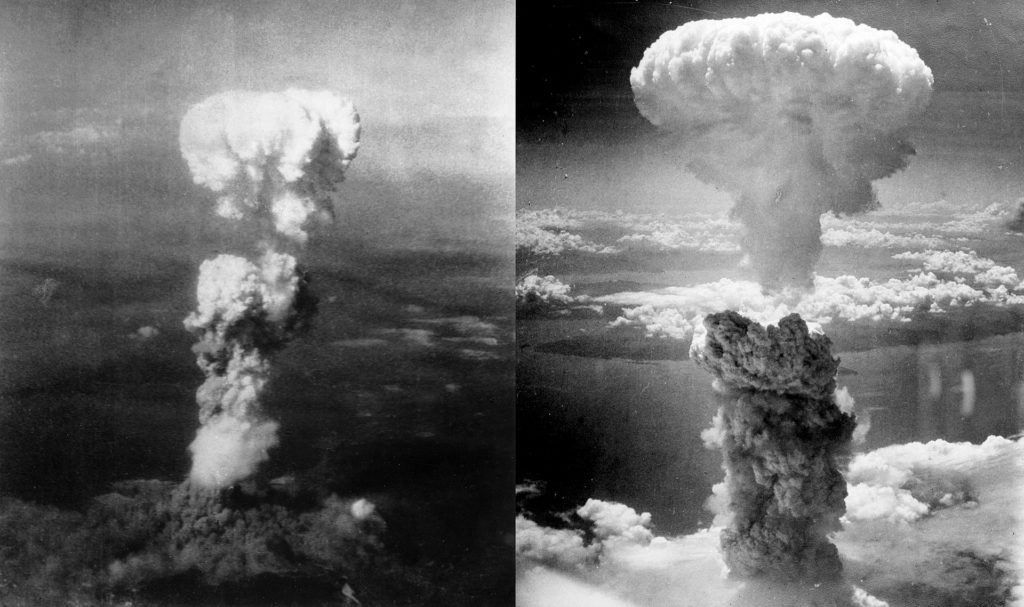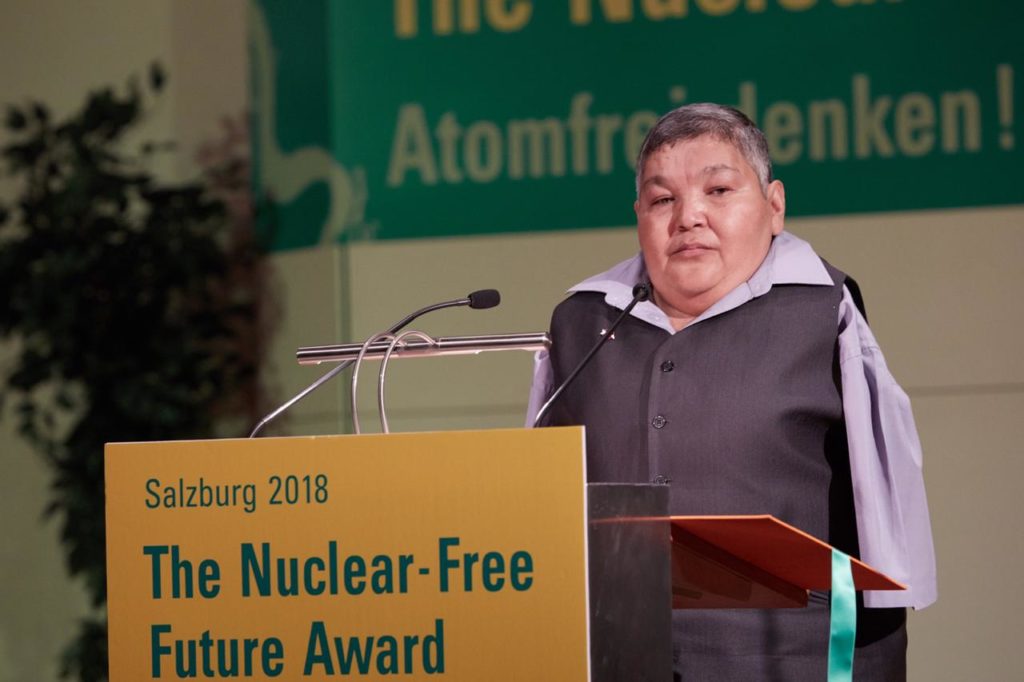NUR-SULTAN – The ATOM Project and its Honorary Ambassador Karipbek Kuyukov called for renewed efforts to bring about a nuclear weapon-free world on the 74th anniversary of the atomic bombings of the Japanese cities of Hiroshima and Nagasaki.
The Atomic Age arrived upon the United States’ bombing of Hiroshima and Nagasaki Aug. 6 and 9, 1945, respectively, that killed between 129,000 and 226,000 people. The bombings have been the only use of nuclear weapons in armed conflict, and The ATOM Project aims to keep it that way.
“We must never forget that day or the lives lost in Hiroshima,” said Kuyukov. “Many lives have been lost to or destroyed by nuclear weapons, including days later in the city of Nagasaki, as well as over decades of nuclear weapons testing. But Hiroshima was the first use of a nuclear device meant to kill. It is a moment of shame for the international community and of horror for the people of Japan. It is a moment upon which we should forever shine a light to ensure that nuclear weapons are never used to kill again.”
Seventy-four years later, the world still lives with the threat of nuclear weapons use. Many in the international community, however, including Kuyukov, have pledged to change that.
Kuyukov is among the 1.5 million people who have suffered as a result of the 456 nuclear tests conducted over 40 years at the Soviet Union’s Semipalatinsk Test Site. He was born without arms as a result of his parents’ exposure to those tests before Kazakhstan shut down the site in 1991. He has gone on to become an internationally recognised non-proliferation activist and painter, whose works capture the suffering of the victims of nuclear weapon testing.
He delivered a powerful plea to ban nuclear testing at the Sept. 6, 2018 session of the United Nations General Assembly and received the Nuclear-Free Future Award Oct. 24 from the Franz Moll Foundation for the Coming Generations.
Kuyukov’s home country has also become a leader in nuclear disarmament and non-proliferation, having renounced what was then the world’s fourth largest nuclear arsenal inherited from the Soviet Union. Kazakhstan signed and ratified the Treaty on the Prohibition of Nuclear Weapons March 2, 2018 and July 3, 2019, respectively, and assumed the 2019-2020 chairmanship of the 48-member multilateral export control regime Nuclear Suppliers Group.
Leading by example, The ATOM Project Honorary Ambassador and Kazakhstan show that building a nuclear weapon-free world is within our power, “with political will and the united voice of citizens around the world,” despite setbacks such as the Aug. 2 withdrawal of the United States from the Treaty on the Elimination of Intermediate-Range and Shorter-Range Missiles.
“The city of Hiroshima opened one of humanity’s most deadly and dangerous chapters. One way we can honour the lives lost is to make sure Nagasaki closed that chapter, that the lives lost in that city will be the last destroyed by the use of a nuclear weapon,” said Kuyukov.
The United Nations’ Aug. 29 International Day against Nuclear Tests, also the 28th anniversary of the closure of the Semipalatinsk nuclear test site, will serve as another important reminder to the international community about the need to renew the efforts for a safer world.


